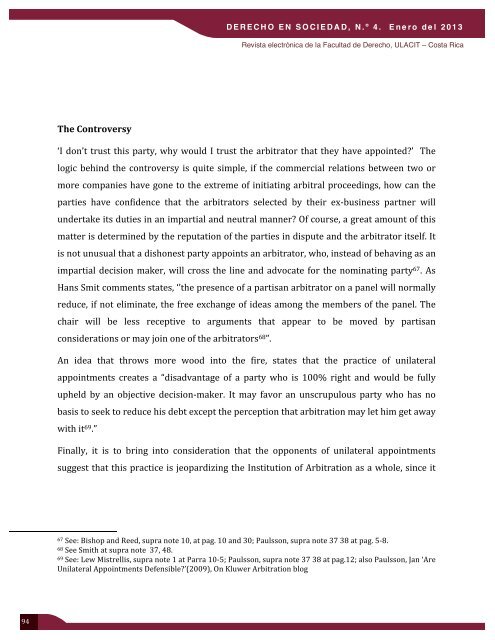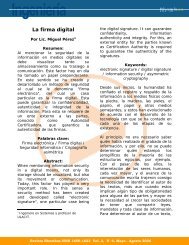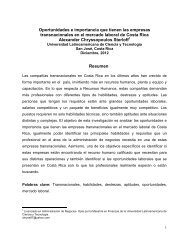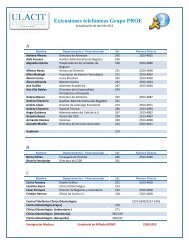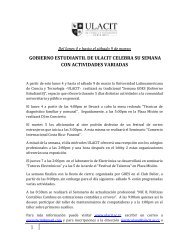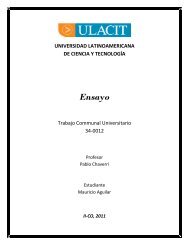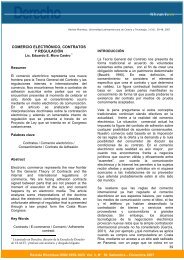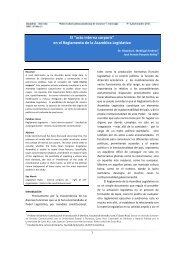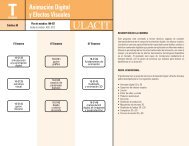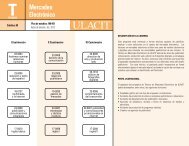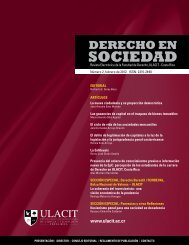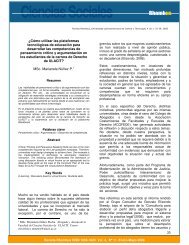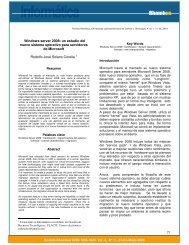IV Edición Revista Derecho en Sociedad - Ulacit
IV Edición Revista Derecho en Sociedad - Ulacit
IV Edición Revista Derecho en Sociedad - Ulacit
Create successful ePaper yourself
Turn your PDF publications into a flip-book with our unique Google optimized e-Paper software.
DERECHO EN SOCIEDAD, N. º 4 . Enero del 2013<br />
<strong>Revista</strong> electrónica de la Facultad de <strong>Derecho</strong>, ULACIT – Costa Rica<br />
The Controversy <br />
‘I don’t trust this party, why would I trust the arbitrator that they have appointed?’ The <br />
logic behind the controversy is quite simple, if the commercial relations betwe<strong>en</strong> two or <br />
more companies have gone to the extreme of initiating arbitral proceedings, how can the <br />
parties have confid<strong>en</strong>ce that the arbitrators selected by their ex-‐business partner will <br />
undertake its duties in an impartial and neutral manner? Of course, a great amount of this <br />
matter is determined by the reputation of the parties in dispute and the arbitrator itself. It <br />
is not unusual that a dishonest party appoints an arbitrator, who, instead of behaving as an <br />
impartial decision maker, will cross the line and advocate for the nominating party 67 . As <br />
Hans Smit comm<strong>en</strong>ts states, ‘’the pres<strong>en</strong>ce of a partisan arbitrator on a panel will normally <br />
reduce, if not eliminate, the free exchange of ideas among the members of the panel. The <br />
chair will be less receptive to argum<strong>en</strong>ts that appear to be moved by partisan <br />
considerations or may join one of the arbitrators 68 ”. <br />
An idea that throws more wood into the fire, states that the practice of unilateral <br />
appointm<strong>en</strong>ts creates a “disadvantage of a party who is 100% right and would be fully <br />
upheld by an objective decision-‐maker. It may favor an unscrupulous party who has no <br />
basis to seek to reduce his debt except the perception that arbitration may let him get away <br />
with it 69 .” <br />
Finally, it is to bring into consideration that the oppon<strong>en</strong>ts of unilateral appointm<strong>en</strong>ts <br />
suggest that this practice is jeopardizing the Institution of Arbitration as a whole, since it <br />
67 See: Bishop and Reed, supra note 10, at pag. 10 and 30; Paulsson, supra note 37 38 at pag. 5-‐8. <br />
68 See Smith at supra note 37, 48. <br />
69 See: Lew Mistrellis, supra note 1 at Parra 10-‐5; Paulsson, supra note 37 38 at pag.12; also Paulsson, Jan ‘Are <br />
Unilateral Appointm<strong>en</strong>ts Def<strong>en</strong>sible?’(2009), On Kluwer Arbitration blog <br />
94


